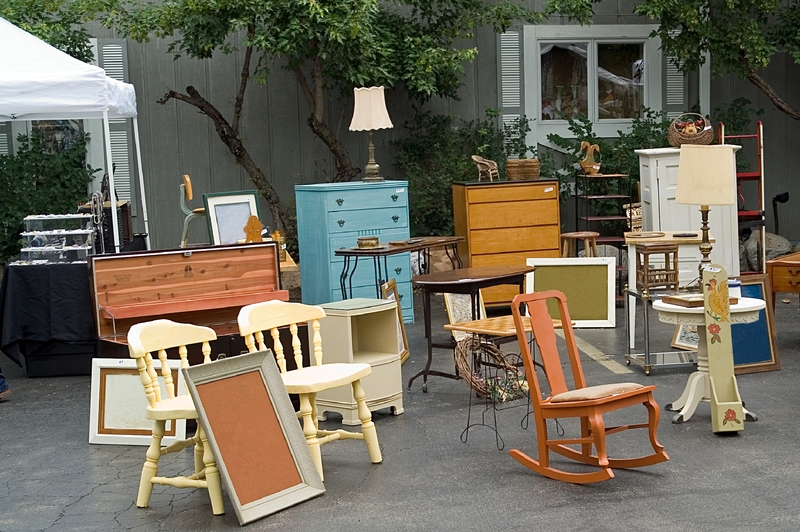Maximize Savings When Handling Bulky Waste Items: A Comprehensive Guide
Dealing with bulky waste items can be daunting--whether clearing out your home, managing an estate cleanout, or renovating an office space. These items, often comprising old furniture, appliances, mattresses, and construction debris, are not only challenging to move but can also lead to significant expenses if not managed correctly. Maximizing savings when handling bulky waste means adopting smart, sustainable, and cost-efficient strategies. In this comprehensive guide, we'll reveal actionable tips, cost-saving methods, and eco-friendly practices to help you efficiently dispose of oversized junk items while protecting your wallet.
Understanding Bulky Waste Items
Before diving into saving tactics, let's clarify what qualifies as "bulky waste items." Municipalities and waste management providers typically define these as objects too large or heavy for regular trash collection. This category often includes:
- Sofas, couches, and recliners
- Mattresses and bed frames
- Large appliances (refrigerators, washing machines, stoves, microwaves)
- Carpet rolls and padding
- Desks, cabinets, and wardrobes
- Renovation waste (drywall, old doors, lumber)
Bulky junk can easily pile up during moves, renovations, or when upgrading furniture. The challenge lies in disposing of these items responsibly and affordably.

Why Handling Bulky Waste Efficiently Matters
Improper handling of large waste items directly impacts your finances and the environment. Maximizing savings on bulky waste removal offers several benefits:
- Reduces landfill waste: Responsible disposal means more items are recycled or reused, minimizing environmental damage.
- Cuts disposal costs: Efficient planning helps avoid hidden charges and over-inflated service fees.
- Frees up usable space: Timely removal lets you reclaim precious space at home or work.
- Encourages sustainable practices: Donating, recycling, or selling bulky items helps foster a circular economy.
Top Strategies to Maximize Savings When Handling Bulky Waste Items
1. Plan Ahead for Bulk Waste Removal
The first and most crucial step in saving money with bulky junk removal is strategic planning. Avoid last-minute bookings for pick-up or dumping, as these will likely result in higher costs due to urgency charges. Ask yourself:
- What are the specific items I need to remove?
- Are any items reusable or resalable?
- Which local resources and collection services exist for bulky waste?
Proper planning may allow you to bundle your waste for volume pricing discounts or even coordinate with neighbors to share dumpsters and split costs.
2. Utilize Free or Low-Cost Municipal Bulk Collections
Many cities and towns run regular free bulk waste collection days for residents. These scheduled pickups let you leave large items curbside at no charge or a nominal fee. Here's how to take advantage:
- Check your municipality's waste management schedule online.
- Register in advance if required.
- Follow guidelines for bundling, separating, or labeling bulky items.
- Request special collections for oversize loads or electronics.
Pro tip: Bulk days fill up quickly--book your spot early and arrange items the night before to avoid missed collections.
3. Sell or Donate Usable Bulky Items
One person's trash may be another's treasure! Maximize bulky waste savings by rehoming items in good condition:
- List furniture, appliances, and other large objects on marketplaces like Facebook Marketplace, Craigslist, or OfferUp.
- Contact local charities, shelters, or thrift stores to arrange free pick-ups.
- Try neighborhood exchange groups or 'Buy Nothing' networks to give away functional items.
Donations may even be tax-deductible. Not only does this method save you disposal fees, but it also benefits your community and keeps waste out of landfills.
4. Break Down Bulky Waste for Easier Handling
If your municipality charges by volume or piece, save money by disassembling large items. This does two things:
- Reduces total pickup size (potentially fitting items in standard trash collection)
- Lowers disposal bills by eliminating "oversize" surcharges
For example: Remove table legs, headboards, or appliance doors where safely possible. Don't forget to bag small parts and keep hazardous components (like batteries or refrigerants) separated for special disposal.
5. Rent a Dumpster -- But Share the Cost
For multi-item cleanouts or renovation projects, a temporary dumpster rental can be more cost-effective than multiple one-off pickups. To cut costs further:
- Split the dumpster with neighbors or nearby businesses.
- Coordinate bulk disposal during HOA or neighborhood clean-up days.
- Choose the appropriately-sized dumpster (don't overpay for unused capacity).
Local rental companies often offer short-term deals, especially for grouped community bookings. Always compare rates and ask about any hidden fees for specific bulky waste types.
6. Separate Recyclables and Hazardous Components
Many bulky waste items contain materials that can be recycled or require special handling for environmental safety. Separating these can reduce or eliminate fees:
- Metals (old bed frames, appliances, radiators) -- take directly to local scrap or recycling facilities, which may pay by weight.
- Electronics and "white goods" (refrigerators, washing machines) -- must often be de-gassed or processed separately.
- Mattresses -- some places offer free or low-fee recycling programs.
- Paints, batteries, and chemicals -- never dispose of with regular waste! Check your region's hazardous waste collection schedule.
By sorting these items in advance, you can avoid fines and even earn rebates for scrap materials.
7. Leverage Professional Junk Removal Services--Strategically
If you lack the time or resources for DIY removal, consider professional bulky waste removal companies. To maximize savings:
- Request quotes from several competing providers.
- Book during off-peak times (mid-week or in winter months) for better rates.
- Ask about discounts for bulk pickups or repeat customers.
- Bundle multiple items to avoid separate trip fees.
Some junk hauling services, such as 1-800-GOT-JUNK or local alternatives, will also donate or recycle eligible items, adding an eco-friendly bonus.
FAQs: Maximizing Savings on Bulky Waste Disposal
How can I get rid of large furniture for free?
Utilize your city's free bulk pick-up days, offer items on local "Buy Nothing" sites, or see if nearby charities will collect them. Breaking down furniture into smaller pieces can also allow you to fit it in your regular garbage collection, saving on special pickup fees.
Is it cheaper to rent a dumpster or hire a junk removal service?
It depends on the volume and type of bulky items. For one or two large pieces, junk removal may be cheaper; for full renovations or multi-family cleanouts, a shared dumpster often delivers better value--especially if organized with neighbors.
What should I do with broken appliances or old mattresses?
Many appliance stores offer "haul away" deals with new purchases. Otherwise, see if your community runs recycling days for white goods and mattresses. Some manufacturers or local programs pick up these items at low or no cost to promote responsible recycling.
Are there fines for improper disposal of bulky waste?
Yes! Dumping mattresses, electronics, or appliances illegally can result in hefty fines. Always check your local regulations and use authorized disposal channels.

Eco-Friendly Bulky Waste Solutions to Save More
Maximizing savings also means adopting eco-conscious strategies. Here are several ways to minimize financial and environmental costs:
- Repurpose or upcycle items such as turning old doors into desks or pallets into shelving.
- Host a yard sale for gently used large objects before scheduling removal.
- Contact building material reuse centers for lumber, fixtures, and cabinetry from renovation waste.
- Pool resources for neighborhood swaps or coordinated donation drives.
Every item kept out of the landfill is money saved on disposal--and positive impact gained for your community.
Maximize Savings When Handling Bulky Waste Items: Final Thoughts
Handling bulky junk doesn't have to drain your budget or harm the environment. With strategic planning, community cooperation, and resourceful reuse, you can minimize disposal costs and maximize the value of every item you clear out. Here's a final checklist to keep your savings on track:
- Plan bulk waste removals well ahead of your deadline.
- Use every available free service or community pick-up program.
- Resell, donate, or upcycle usable items wherever possible.
- Split costs and coordinate with neighbors to share dumpsters or service appointments.
- Compare all options--DIY, municipal, professional--for the best deal.
- Always dispose of hazardous and recyclable materials responsibly to avoid fines and support sustainability.
By following these insider tips, you will not only maximize your savings during bulky waste cleanouts but also contribute to a cleaner, greener future. The next time you're staring down a pile of oversized junk, remember--smart, sustainable disposal pays off every time!
```